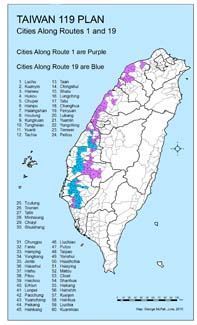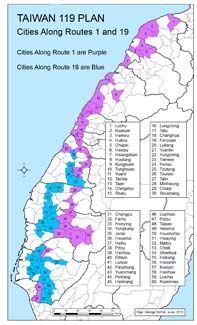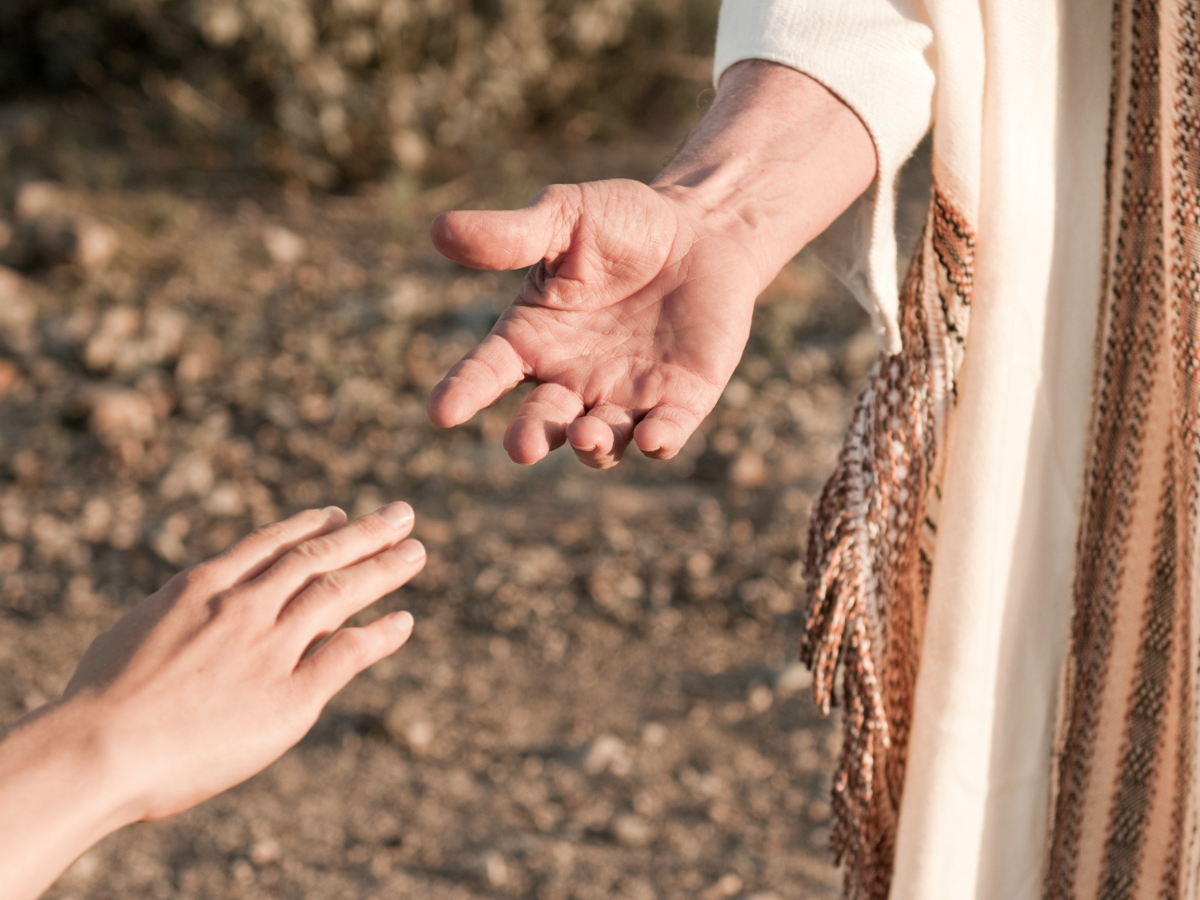
Taiwan: Vision 119
Vision 119: Calling for 119 workers to plant 60 churches along old Route 1 and 19 in Taiwan.
Taiwan has a population of 23 million. About 3.5 million live in 60 cities and towns, the least-reached with the Good News, from Taoyuan to Tainan, all along the western side of the island. Almost all these towns are connected by two ancient roads, old Route 1 and Route 19.

With the help of railroads, freeways and highways, the last 145 years of church planting have succeeded in reaching Taiwan’s 15 largest cities. However, dozens of smaller communities along these two roads remain almost completely unreached with the sweet fragrance of the gospel. Their average population is 58,000 and most of these towns have less than 1 percent evangelical Christians. These are the hardest cities and towns to reach . They comprise the majority of the working class, factory workers and farming-related industry in Taiwan.
SEND International has a vision to reach all 60 areas with the gospel by 2029. We believe that strong churches in these areas, in partnership with the larger churches and seminaries in the bigger cities, will be able to complete the evangelization of Taiwan.

1-1-9 is also the emergency number in Taiwan. Adopting this number as the new vision is a reminder of the urgency to reach the lost.
Join us in fervent prayer to the Lord of the Harvest for more laborers. We are looking for 119 new missionaries to make this vision a reality. We also need churches to adopt a needy town, cover it in prayer, and send out short-term workers and even three to five families to help plant a church. Will you pray about what you can do to help reach these areas?
Vision 119 Frequently Asked Questions
Who are you looking for to join SEND Taiwan’s Vision 119?
First, we are seeking those with a clear sense of calling from God to love and serve the people of Taiwan in order to see them come to a life-changing faith in Jesus Christ. Other important characteristics of those who will be fruitful and successful serving with SEND Taiwan in Vision 119 include:
- Ability to relate to working-class people of Taiwan
- Willingness to live in smaller towns and communities rather than large cities
- Willingness to accept educational options for children available in these locations
- Specialties in “bridge-building skills” into the community (sports, story-telling, music, English teaching, etc.)
What qualifications are needed to serve with SEND Taiwan?
Applicants are considered for service in SEND on the basis of their ministry and gifts.
- Clear testimony of response to God’s call to salvation and discipleship.
- Evidence of God’s leading to missionary service and to SEND International.
- Evidence that God is empowering for ministry and service to him.
- Professional, technical or theological training for the work anticipated
- Sound knowledge of the Scriptures preferably through formal Bible instruction
- Functionality in spoken English language
- Ability to communicate God’s Word, concern for people, flexibility to adapt to whatever situation is demanded by the assignment
Where will I be assigned if I am accepted to work with SEND in Taiwan?
Vision 119 encompasses the region of the western coastal plain of Taiwan from Taoyuan in the north to Tainan in the south, and specifically focuses on 60 cities and smaller towns where few churches exist to bring God’s love to the community.
How is the decision made where I will be assigned with SEND Taiwan?
The Area Council is responsible to assign SEND missionaries to ministry in Taiwan in order to fulfill the vision God has given to reach the least-reached communities with his Good News in Christ. Decisions are made in full consultation with you and in a spirit of prayer seeking God’s leading.
What are the educational options for our children if we serve with SEND in Taiwan?
Mission co-workers in Taiwan’s Vision 119 may choose from the following options for education of their children:
- Public Taiwan schools (for one to three years of lower elementary school)
- Home-school (a parent assumes responsibility for education, or a teacher volunteers to assist)
- Morrison Christian Academy satellite school (a one-room multi-grade school provided by Morrison in areas where there is a concentration of missionary children needing schooling)
- Morrison Christian Academy boarding school (from 7th grade through high school, provided at the Taichung campus with opportunity for children to commute home on weekends and holidays).
What do you mean by “like-minded” churches, groups or individuals with whom SEND partners in its Taiwan outreach?
“Like-minded” churches, groups or individuals with whom SEND Taiwan can partner demonstrate the following characteristics:
- Compatibility with SEND’s doctrinal positions as contained in the Statement of Faith and the values of SEND International
- Similar in vision for the least reached of Taiwan and philosophy of ministry to make a good partnership
- Not aggressively advancing ordination of women as elders or pastors
- Not aggressively advancing charismatic expression
What do you mean by a “term” of service in SEND Taiwan?
A “term” of service in SEND Taiwan is the period of time for which one is assigned between arrival to Taiwan and the first “home service” in one’s sending country. Typically, this is not more than four years, and can be three years depending on the objectives of the work to which one is assigned and personal needs.
What do you mean by a “unit” when you are speaking of those serving with SEND Taiwan?
A ”unit” is a single worker, or a couple, serving under SEND in assigned ministry.
Will I need to raise financial support to serve with SEND in Taiwan?
SEND ascribes to the “faith mission” principle, in which we look to God to provide for the material needs of our work and of us as we serve him. Each SEND member is responsible to secure commitments from churches and friends to fully underwrite the needs of his or her upcoming term of service before departure to Taiwan. Mission leadership is willing to assist and to speak to church leaders on behalf of members if this is considered helpful.
Give to Vision 119.
Maps by George McFall. Used by permission.
Additional Posts




